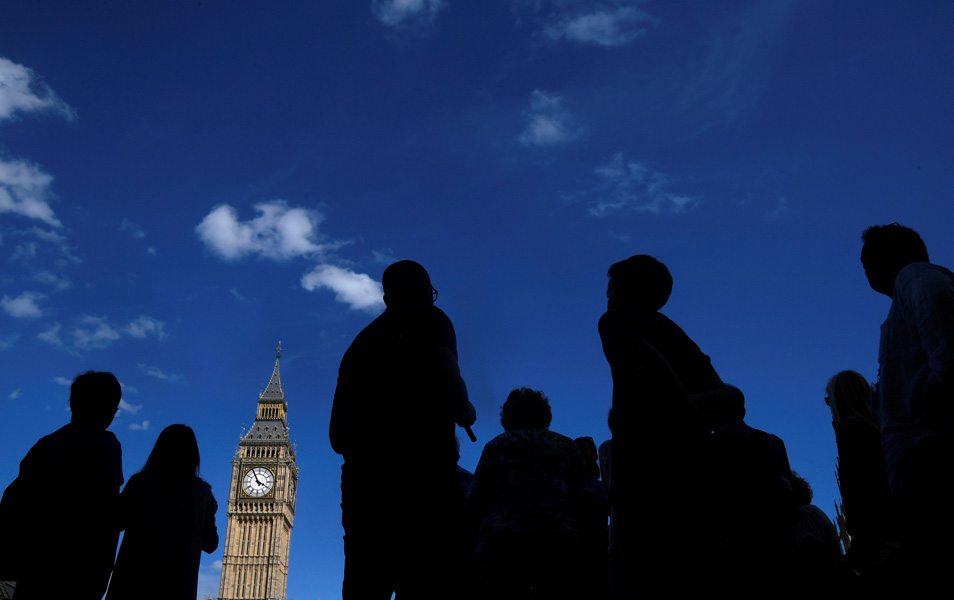
People are seen Aug. 16 in London. (CNS photo/Toby Melville, Reuters)
For the first time in history, a majority of Britons report having no religion, according to data from the 2016 British Social Attitudes Survey released early this week.
Fifty-three percent of the British public profess no religion, an increase in 5 percent from 2015. The proportion of the British public identifying with no religion has been steadily growing in the last fifteen years according to the annual survey, rising by 12 percent since 2002. The same time frame has seen a 13 percent decrease in the number of Christians.
The results of the British survey were released just as the findings of a similar survey in the United States reported that Americans are also continuing to move away from organized religion. Atheists, agnostics and those who say they do not identify with any particular religion — the group known as the "nones" — make up about 24 percent of the U.S. population, according to the Public Religion Research Institute.
The British study, which is conducted annually and surveyed nearly 3,000 people, found that the last decade and a half have taken a particular toll on the Anglican Church. Britain's official state religion has seen its representation in the survey drop by half since 2002, from 31 percent down to only 15 percent.
Other Christian denominations have fared better. The proportion of respondents self-identifying as Roman Catholic has remained steady at 9 percent, and those responding as "Other Christian" has risen slightly, from 14 to 17 percent.
The primary cause of religious decline in Britain appears to be the Anglican Church's inability to retain youth membership. A substantial majority of the Church of England (66 percent) is age 65 or older, and less than 10 percent are under the age of 35.
Maintaining youth membership also appears to be a major problem for Protestant denominations in Britain; nearly half of Britain's "Other Christians" (47 percent) are 65 or older. The Roman Catholic Church, in contrast, has about the same proportion under the age of 35 as over 65 (14 percent and 15 percent, respectively).
The number of non-religious people under the age of 24 has risen sharply, with a 9 percent increase in just the past year. 71 percent of Brits under the age of 24 now claim no religion.
The changes in religious affiliation coincide with an increase in liberal attitudes towards many social and moral issues, particularly on gender related topics, the survey found.
Advertisement
Seventy-five percent of respondents report that they have no moral problem with premarital sex, an 11 percent increase over five years, 64 percent report no objection to same-sex relationships, a 17 percent increase over that time. 2016 was the first year the survey asked about attitudes toward transgender people, and found that 82 percent reported no "prejudice at all."
According to Roger Harding, head of public attitudes at the National Centre for Social Research, which conducts the survey, "The differences by age are stark and with so many younger people not having a religion it's hard to see this change abating any time soon. …
"We know from the British Social Attitudes survey that religious people are becoming more socially liberal on issues like same sex relationships and abortion. With falling numbers some faith leaders might wonder whether they should be doing more to take their congregation's lead on adapting to how society is changing," Harding said in a press release.
[James Dearie is an NCR Bertelsen intern. He can be reached at jdearie@ncronline.org.]





